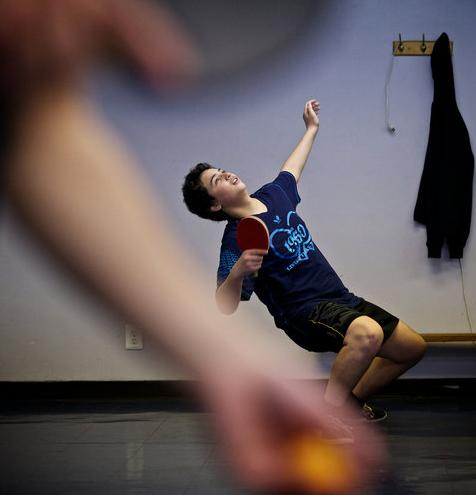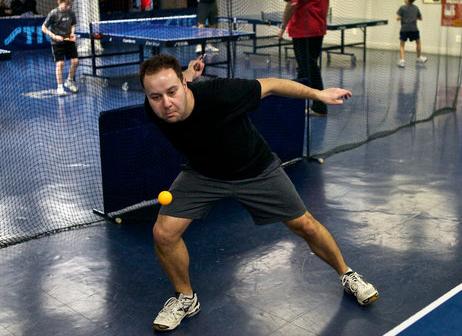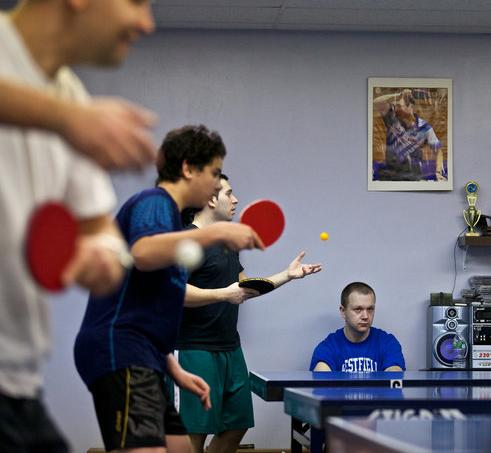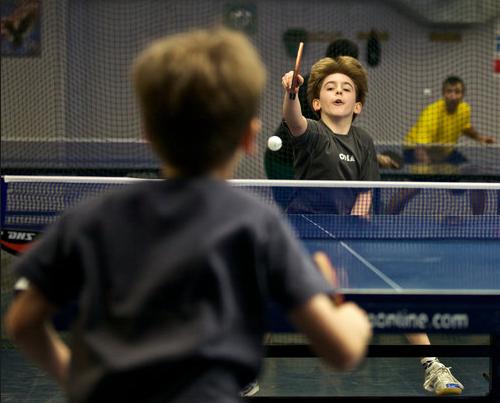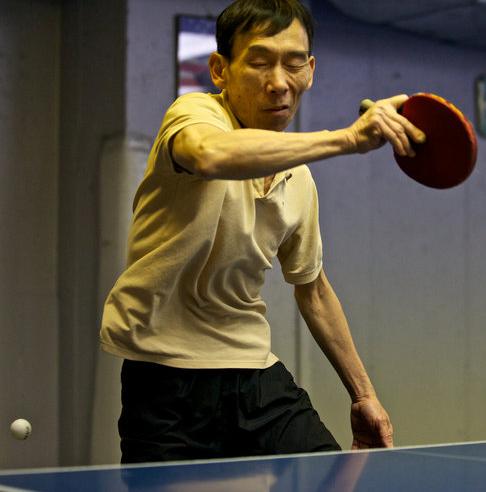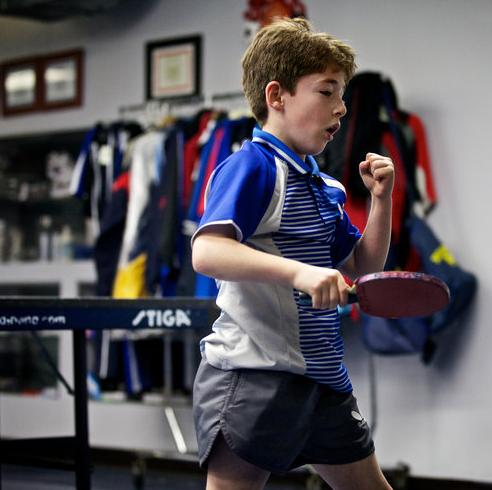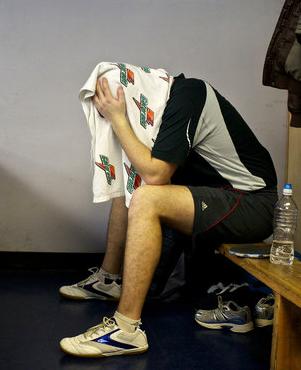
Nine Tables, Fast Service, Racket Welcome.
TABLE tennis is an addiction, Saleem Majied confessed one recent Thursday night.
Mr. Majied, 63, who owns his own telecommunications business, said he packed up his 6.5-inch paddle three or four times a week, sometimes five, and journeyed from Crown Heights to Midwood, Brooklyn, to go head-to-head against many of the boroughís top players.
His destination is a nondescript office building on Coney Island Avenue. In the basement, past the parking garage, is the Brooklyn Table Tennis Club, a big room packed with nine tables. There, Mr. Majied joins an eclectic crowd: young and old, Chinese and American, Hasidic and Muslim.
At the popular Thursday and Sunday tournaments, a quiet, collective intensity usually prevails, though the thwock of balls hitting rackets and tables is occasionally punctuated by exclamations and expletives in a variety of languages. Itís very diverse here; we welcome everyone, the clubís founder, Nison Aronov, 46, said. But most hail, as he does, from the former Soviet Union.
Fashionable table tennis lounges like SPiN New York have found a niche in Manhattan in recent years. But Americans still tend to think it is just Ping-Pong, a fun game, said Olga Drabkina, 37, who comes four times a week to train and play. For the players here, though, as in much of the world, table tennis is a serious sport.
And for Mr. Aronov, a Bukharan Jew and native of what is now Tajikistan, the club is more than just a livelihood. If not for table tennis, he said, I would have been a bandit on the street.
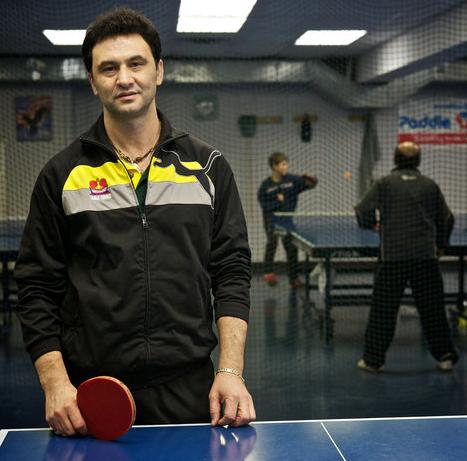 |
Itís a credible claim. Before Mr. Aronov was born, his father left his pregnant
mother and three young children. By age 7, Mr. Aronov was on the streets,
getting tattoos, stealing and smoking, he said. But after he and his brother
discovered table tennis in a local park, he was discovered himself.
A man named Valeriy Elnatanov offered to coach him free if he behaved and got good grades.
He changed my life completely, Mr. Aronov said. Mr. Aronov became the top-ranked junior in his homeland, then at 16 the junior champion of the Soviet Union and eventually the adult champion of Tajikistan. With success came money and other privileges, but the end of Soviet rule brought a civil war that eventually left 150,000 dead. In 1993, Mr. Aronov and his wife at the time fled to New York. Driving a taxi and raising two daughters left no free time, and Mr. Aronov didnít play for five years. |
After he returned to the table, another Soviet ťmigrť, Dr. Michael Patin, began sponsoring him at tournaments. In 2005, Mr. Aronov reached the United States doubles finals and became the over-40 doubles champion. By that point, Dr. Patin, a successful family practitioner, had also persuaded Mr. Aronov to give up his taxi and open the club, which made its debut in 2003.
Business was so slow initially, Mr. Aronov said, that it was like being in jail, sitting in the windowless room with no customers.
His brother, who had invested in the club, urged him to walk away. But Nison is stubborn, said Dr. Patin, who has been providing financial backing. Mr. Aronov gradually attracted more pupils and coaches, who brought other talented players.
Today, the club has found its footing, and Mr. Aronov offers discounts to those who need help, even dropping the price to zero for some. Michel Levinski, 16, moved with his family to Brooklyn from Israel in October. He was a competitive player there but couldnít afford table time here. So Mr. Aronov not only lets him play free, but also drills Michel without charge, seeing in him a younger version of himself.
If I didnít know him, I would have to drop table tennis, Michel said of his coach. He is my hope.
